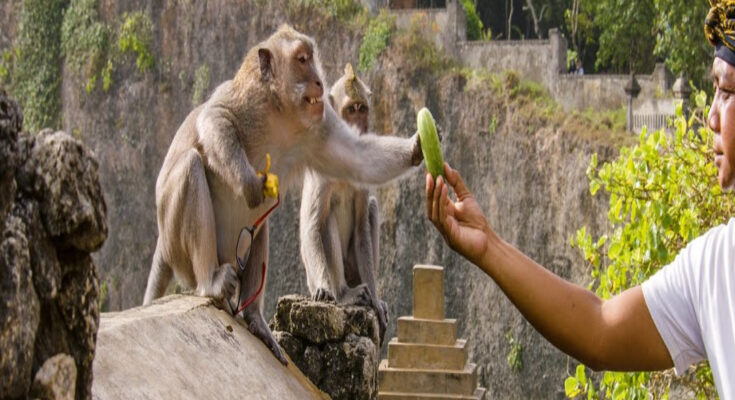In Bali, long-tailed macaques have developed a unique daily routine. Each morning, the troop makes its way to a building at the center of their territory, where crowds of tourists gather every day. The temple grounds are full of opportunities for those who know where to look.
The macaques have become adept at finding hats and sunglasses, not for consumption, but for bargaining. These items become valuable trade goods. Tourists often find it a fair trade to offer food in exchange for their belongings. However, the more experienced macaques know there are greater rewards to be had.
An old male macaque, in particular, demonstrates significant success. Along with other elders in the troop, he possesses the experience and knowledge gained from over a decade of working the temple. These older macaques focus on high-value items, understanding that no one wants to leave with just one shoe, and they eagerly seek out the latest technology.
The older males have mastered the art of the deal, a skill that younger macaques are still learning. They expertly negotiate, knowing how to demand better rewards. While a banana might be an initial offer, they hold out for something more enticing, like a bar of chocolate. The real skill lies in these negotiations.
In essence, the macaques have turned the tables, playing the tourists at their own game. With cunning and cleverness, they demand and receive whatever they want, showcasing their impressive ability to adapt and thrive in their unique environment.



